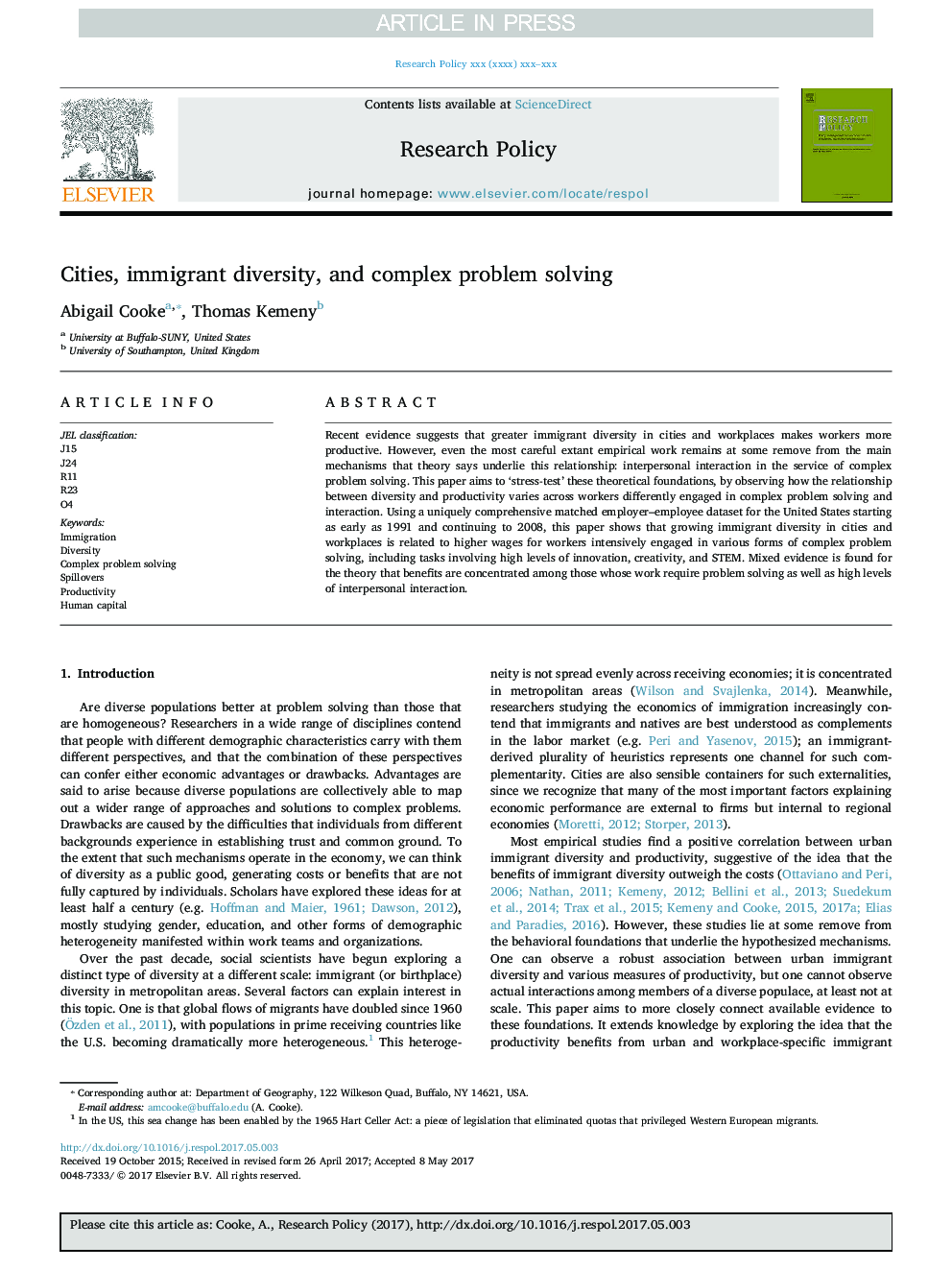| Article ID | Journal | Published Year | Pages | File Type |
|---|---|---|---|---|
| 5103953 | Research Policy | 2017 | 11 Pages |
Abstract
Recent evidence suggests that greater immigrant diversity in cities and workplaces makes workers more productive. However, even the most careful extant empirical work remains at some remove from the main mechanisms that theory says underlie this relationship: interpersonal interaction in the service of complex problem solving. This paper aims to 'stress-test' these theoretical foundations, by observing how the relationship between diversity and productivity varies across workers differently engaged in complex problem solving and interaction. Using a uniquely comprehensive matched employer-employee dataset for the United States starting as early as 1991 and continuing to 2008, this paper shows that growing immigrant diversity in cities and workplaces is related to higher wages for workers intensively engaged in various forms of complex problem solving, including tasks involving high levels of innovation, creativity, and STEM. Mixed evidence is found for the theory that benefits are concentrated among those whose work require problem solving as well as high levels of interpersonal interaction.
Related Topics
Social Sciences and Humanities
Business, Management and Accounting
Business and International Management
Authors
Abigail Cooke, Thomas Kemeny,
